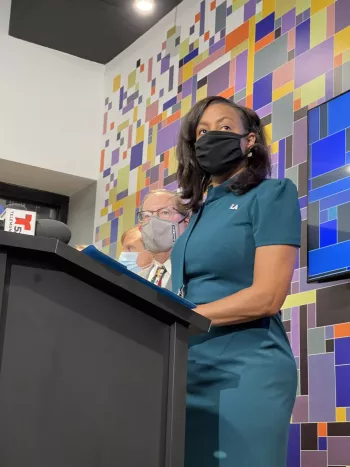In 2021, Los Angeles City Council established an Office of Race & Equity (formerly Office of Racial Equity) within the Civil + Human Rights and Equity Department (LA Civil Rights) to advance race and equity in the City of Los Angeles through policy and programs.

What is racial equity?
Racial equity is achieved when race does not determine or predict the distribution of resources, opportunities, and burdens for group members in society (Click here to read more).
Like much of the United States, Los Angeles has been shaped by policies and programs which harmed communities of color - from redlining, which segregated our city, to the forced relocation of Indigenous and Latinx communities. It is policies like these that have created the disparities we see today, such as white households in Los Angeles have a median net worth of $355,000, while Mexican and African American households have a median wealth of $3,500 and $4,000, respectively (Source: UCLA).
In order to have a Los Angeles where opportunity is open to all, we need to address centuries of legal, social and economic systems which have disenfranchised communities of color from their health, their wealth, and their freedom. To create a fairer and more prosperous city, we must actively pursue racial equity.
Our Vision
We envision a City that authentically engages communities most harmed by systemic racism, as leaders and collaborators, in the process of identifying data, distributing public resources, and reforming policies that impact outcomes of Civil + Human Rights and Equity.
Our Mission
The mission of the Office of Race & Equity is to propel the City’s commitment toward achieving equitable outcomes for internal and external stakeholders by proactively addressing systemic oppression through culture, policies, practices, and programs with an intersectional framework, resulting in equitable opportunities and access for historically marginalized communities.